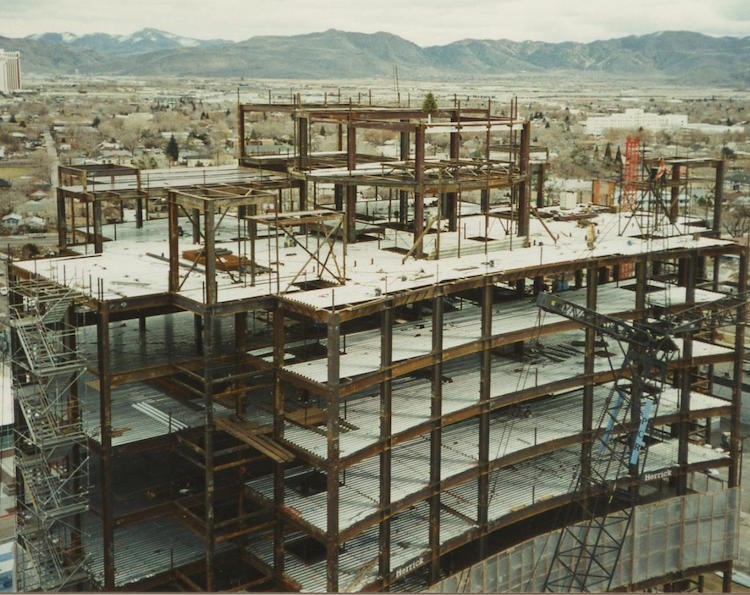
It seems like a good day to ask the fairly basic (but also oft wondered) question: What do engineers actually do?
Allen Forbes has been a structural engineer for more than 35 years. The owner of Reno-based Forbes Engineering says much of his job is about collaborating with architects and other professionals to come up with creative solutions. “Architects are about making buildings cool and we’re about making them work,” he says. “So we’re constantly looking at things like functionality, wind and earthquake patterns, building code requirements and efficient use of construction materials to make sure the buildings will stay upright and safe.”
Some other engineering careers (which you’ll find on our website here) could include:
-
Civil: Planning, designing and overseeing construction and maintenance of building structures and facilities, such as roads, railroads, airports, bridges, harbors, channels, dams, irrigation projects, pipelines, power plants and water and sewage systems.
-
Robotics: Designing and creating robots and robotic systems that are able to perform duties that humans are either unable or prefer not to complete.
-
Health and Safety: Promote worksite or product safety by applying knowledge of industrial processes, mechanics, chemistry, psychology and industrial health and safety laws.
-
Chemical: Design chemical plant equipment and devise processes for manufacturing chemicals and products — such as gasoline, synthetic rubber, plastics, detergents, cement, paper and pulp — by applying principles and technology of chemistry, physics and engineering.
-
Environmental: Research, design, plan or perform engineering duties in the prevention, control and remediation of environmental hazards using various engineering disciplines.
-
Mining and Geological: Conduct sub-surface surveys to identify the characteristics of potential land or mining development sites. May specify the ground support systems, processes and equipment for safe, economical, and environmentally sound extraction or underground construction activities.
 Many people think of math when they think of engineering, and while math is important for all of these careers, there’s more than that. They all require critical thinking skills, judgment, decision-making and complex problem solving.
Many people think of math when they think of engineering, and while math is important for all of these careers, there’s more than that. They all require critical thinking skills, judgment, decision-making and complex problem solving.
Forbes also emphasizes the importance of good verbal skills. “We hear from people who want to go into engineering because they think they’re bad with words, but communication is just as important as the other skills they’ll need.”
There are also additional skills necessary for each specific type of engineering. “For us, physics is probably more important than math,” said Forbes, whose business focuses on structural engineering. “These days the computer does much of the math, but we have to understand all of the individual elements (load paths, how loads get into buildings, transferring them from the roof through supporting members, etc.) and the big picture of how all those pieces come together.”
He says his career has been highly rewarding and he recommends it for young people. “Like anything, you have to work hard to be successful, but it’s a constant challenge and every day is different.”
Engineers also tend to be in high demand and the salaries tend to reflect that, with salaries starting at about $63,000 on the low end up to $130,000 or far more on the high side. Most engineering positions require a minimum of a bachelor’s degree, with more education typically equating to higher salaries.
If you’re interested in a career in engineering, arrange for a college tour so you can see how cool these fields are and how much fun the students are having. It’s also worthwhile to take an engineer out for coffee to pick their brains.
You can get started here: http://www.stemhub.nv.gov/quiz-section.